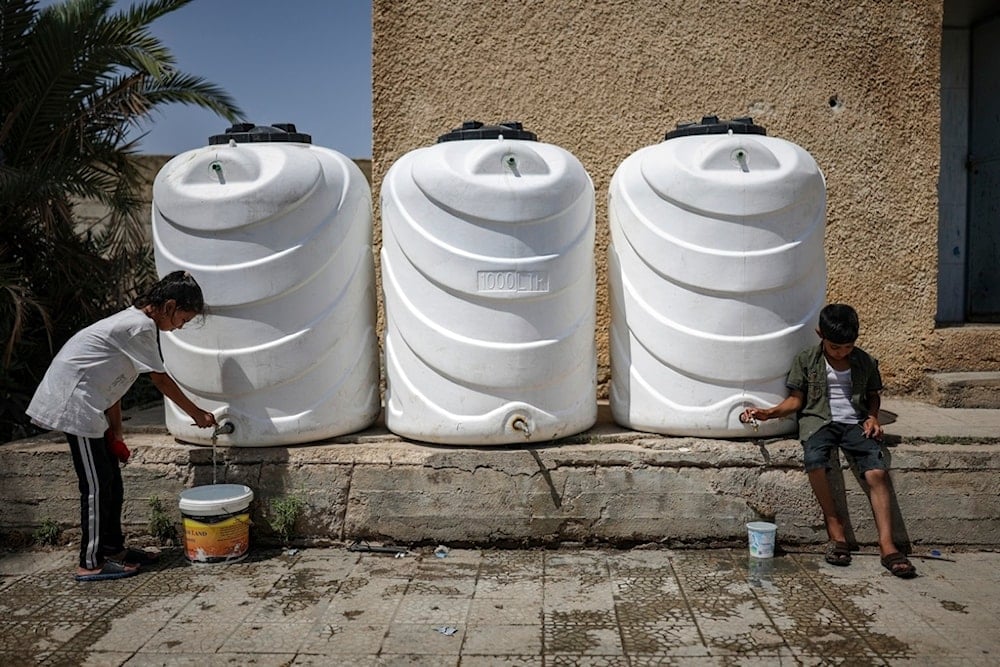UN warns Sweida ceasefire at risk
The UN has warned that the fragile ceasefire in Syria's Suwayda province may collapse.
-

Children collect water from containers at a school sheltering displaced Syrian Bedouins from the Sweida region, forced from their homes after clashes between Druze militias and Bedouin groups, in the village of Abtaa in rural Daraa, Syria, Aug. 15, 2025 (AP Photo/Ghaith Alsayed)
The United Nations has sounded the alarm over the shaky ceasefire in Syria’s southern Sweida province, warning that renewed massacres and regional escalation remain a very real possibility.
Briefing the Security Council on Thursday, UN Special Envoy for Syria Geir Pedersen said the mid-July agreement was under severe strain. "In Sweida, the ceasefire agreed on 19 July has come under strain, but, so far, has prevented a slide back into open conflict… That said, we are still seeing dangerous hostilities and skirmishes on the margins of Sweida, and violence could resume at any moment," Pedersen told the Council.
He added that "the absence of stronger commitments and mutual trust continues to undermine the ceasefire’s stability."
From Clashes to Massacres
The ceasefire followed some of the bloodiest violence in years, when armed groups backed by Damascus, including Bedouin militias aligned with the state and elements of pro-government security forces, carried out attacks on Druze villages. Local Druze defense units resisted, sparking heavy battles that forced Damascus to send additional forces to the province on July 15.
The death toll remains contested. According to Syria TV, 558 people were killed, 783 wounded, and more than 2,000 families fled to Daraa, while the Syrian Observatory for Human Rights placed the number at over 1,000 dead. Local monitors accuse pro-Damascus factions of direct involvement in the massacres, compounding Druze mistrust of the central state.
Regional Powers Exploit the Crisis
The fighting quickly drew in outside actors. "Israel" launched airstrikes on Syrian regime positions, claiming it was protecting Druze communities, a justification Damascus condemned as a violation of sovereignty. Analysts warn "Israel" is using the crisis as a pretext to expand its influence beyond the occupied Golan Heights, exploiting instability in southern Syria to entrench its presence.
At the same time, the United States has floated humanitarian arrangements, including a corridor for aid deliveries, while French officials hosted talks on reviving old Syrian-Israeli disengagement frameworks. These moves reveal how regional and global powers are seeking to turn the Sweida crisis into leverage in Syria’s broader conflict.
Growing Druze Demands
Inside Sweida, the violence has reignited calls for autonomy and self-determination. Large protests have condemned Damascus for failing to shield local communities and accused elements tied to the state of complicity in the bloodshed. For many Druze, survival now appears tied to strengthening their own defense structures rather than relying on central authorities.
With trust absent, pro-government elements implicated in atrocities, and "Israel" exploiting the crisis to expand its territorial ambitions, observers fear the province could soon become a new flashpoint, not only for Syria’s fractured landscape but for the wider region.
Read more: 3 million Syrians could face severe hunger amid drought, wheat crisis

 3 Min Read
3 Min Read










